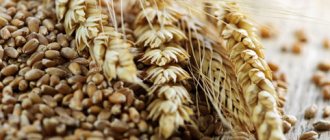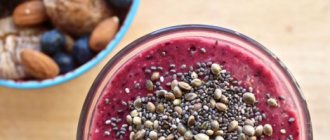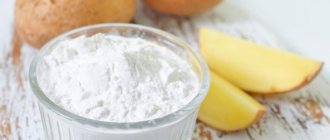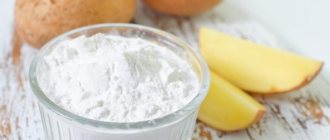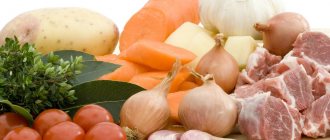Beans
A 100-gram serving of cooked beans contains 0.7 grams of leucine ().
It is also a good source of protein, fiber and micronutrients such as folate and other B vitamins, manganese, iron, phosphorus, magnesium and potassium.
Eating beans has been shown to protect heart health and improve metabolic risk factors associated with obesity, such as high blood pressure, high cholesterol and high blood sugar (,).
Beans also contain phosphatidylserine, a fatty compound that may benefit aspects of brain health such as memory, attention, problem-solving and communication skills ().
Beans have a neutral flavor that works well in many dishes. To get more nutrients, try adding it to soups, salads, using it as a side dish, or pureeing it.
Summary:
Beans are a good source of leucine: 100 grams of cooked beans contain 0.7 grams of leucine. It is versatile and can be enjoyed in many different ways.
Cottage cheese
A 100-gram serving of 1% fat cottage cheese contains 1.27 grams of leucine ().
It is also a good source of protein, vitamin B12 and selenium.
Due to its high protein content, consuming cottage cheese can promote weight loss by keeping you feeling full longer. Cottage cheese can also help build muscle mass when combined with resistance training (,).
Sprinkle cottage cheese with berries and nuts for a hearty breakfast, use it to make cheesecakes or cottage cheese.
Summary:
Cottage cheese is an excellent source of leucine, containing 1.27 grams per 100-gram serving. It also contains protein, vitamin B12 and selenium. You can serve it with any dish throughout the day or use it in recipes.
Leucine uses
For medical use, amino acid supplements are available in the form of tablets, capsules and powder. There are different dosages, ranging from 500 to 5000 mg per serving. The nutrient is well absorbed if you take supplements 1-1.5 hours before or after meals.
Amino acid-based drugs are prescribed for neuritis, liver diseases, anemia, poliomyelitis, degenerative processes in muscle tissue, and to increase immunity. Positive reviews from doctors indicate the possibility of using amino acids in the drug preparation regimen of cancer patients for surgery or chemotherapy.
Preparations containing leucine in increased dosages are recommended for athletes. The substance is produced in the form of mono-additives for the preparation of protein shakes, and is also part of a complex three-component BCAA mixture for muscle growth. To improve athletic performance, it is recommended to drink dietary supplements before training. To build muscle, trainers in reviews advise consuming protein after strength exercises.
Watch a video with instructions on the use of BCAA amino acids in sports:
BCAA amino acids Leucine, Isoleucine and Valine
Interesting! The substance leucine is used in cosmetology to regenerate aging skin, eliminate wrinkles and stretch marks. Its formula is found in lifting cosmetic products, neck and décolleté care products.
Sesame seeds
Just 2 tablespoons (18 grams) of whole dried sesame seeds contain 0.25 grams of leucine ().
These nutrient-rich seeds are also a good source of fiber, protein, calcium, manganese, magnesium, zinc and B vitamins.
They also contain plant compounds that have been shown in human and animal studies to reduce inflammation, regulate blood sugar, and lower high cholesterol (, , ).
Sesame is great in stir-fries, pasta dishes and smoothies, and in green salads. You can also try sesame seed oil called tahini.
Summary:
Sesame seeds may be tiny, but just 2 tablespoons (18 grams) contain a number of micronutrients and 0.25 grams of leucine.
Pumpkin seeds
A 30-gram serving of dried pumpkin seeds contains 0.7 grams of leucine ().
Pumpkin seeds are rich in plant compounds that are known to have health benefits. They are also a rich source of nutrients such as protein, fiber, unsaturated fatty acids, phosphorus, magnesium, manganese, iron, zinc and copper ().
Regular consumption of seeds has been shown to support heart health, largely due to the fat they contain. Enjoy pumpkin seeds along with other seeds such as chia, hemp, flax, sesame and sunflower seeds ().
Pumpkin seeds are delicious tossed and baked in the oven, mixed into granola or granola, mixed into pesto, or baked into breads and cookies.
Summary:
Dried pumpkin seeds are a good source of leucine, containing 0.7 grams per 30-gram serving. They also contain many vitamins and minerals that can benefit your health.
Eggs
One very large chicken egg (about 56 grams) contains 0.6 grams of leucine ().
Eggs are also rich in protein, B vitamins, phosphorus, selenium and choline, the latter of which is essential for cellular and brain health ().
In addition, eggs contain lutein and zeaxanthin, two types of carotenoids. These colorful compounds have antioxidant properties that are beneficial for eye health ().
Boiled eggs are a great portable snack that is high in protein. You can also make scrambled eggs for breakfast or use them in baked goods such as bread, muffins and waffles.
Summary:
One large egg contains 0.6 grams of leucine, in addition to protein, B vitamins and choline. Enjoy them as a portable snack or a key ingredient in many recipes.
Biological role
Leucine formula
The amino acid leucine is found in various protein formulas in all organs. But the largest amount of the substance is found in skeletal muscle tissue. The nutrient cannot be synthesized in the body from other amino acids. When supplied from the outside, it is quickly absorbed in the intestines.
L-leucine has a number of positive properties:
- normalizes the metabolism of proteins, fats and carbohydrates;
- stimulates insulin production;
- supplies cells with energy;
- promotes muscle growth, increases strength and tone;
- participates in the synthesis of hemoglobin and whey proteins;
- increases the body's defenses;
- increases serotonin content, stabilizes mental state.
The most important nutrient for athletes, bodybuilders and people wanting to lose weight. Studies have found that the amino acid promotes the breakdown of adipose tissue and at the same time increases muscle volume.
Hemp seeds
Just 3 tablespoons (30 grams) of shelled hemp seeds contain 0.65 grams of leucine ().
These seeds are also rich in protein, fiber, manganese, vitamin E and unsaturated fatty acids with anti-inflammatory properties.
Additionally, animal and human studies show that hemp seeds and hemp seed supplements may relieve arthritis symptoms and support digestive and heart health (, , , ).
Hemp seeds are tiny and versatile, with a subtle, earthy flavor. They can be added to salads and pasta dishes, added to smoothies, or added to ice cream or other desserts.
Summary:
Hemp seeds can be added to smoothies or a variety of dishes as a source of leucine, protein, and fiber. Just 3 tablespoons (30 grams) contains 0.65 grams of leucine.
Lentils
A 200-gram serving of cooked lentils contains 1.3 grams of leucine ().
Lentils are also rich in fiber, antioxidants, protein, and health-promoting plant compounds that can benefit your heart and brain (, , , ).
They can be used in much the same way as beans. For example, they work well as a healthy side dish or in soups, salads and homemade veggie cutlets.
Summary:
Lentils are a tasty and convenient source of plant-based protein. They're rich in leucine—a 200-gram serving of lentils contains 1.3 grams of leucine, as well as other health-promoting plant compounds.
Leucine requirement
An adult needs to take about 4-6 g (4000-6000 mg) of the amino acid leucine per day. Doctors have not developed tables of norms for different age groups.
The nutrient requirement for pregnant and lactating women does not differ from the standard dosage. For professional athletes, bodybuilders and people engaged in heavy physical labor, the daily norm is 6-15 g. In children, the need for the amino acid depends on weight: doctors recommend giving an average child 150 mg of leucine per kg of body weight.
To determine the level of a chemical compound in the body, it is necessary to do a laboratory analysis, for which venous blood is collected on an empty stomach. Normal leucine concentration in an adult is 1.2-3.5 mg/dl. You can also do a comprehensive urine profile that shows the content of each of the 20 amino acids.
Spirulina
Spirulina is a blue-green algae rich in protein, B vitamins, copper and iron. Add it to green smoothies and juices, energy balls or savory puddings and popsicles.
Just 2 tablespoons (14 grams) of dried spirulina contains 0.69 grams of leucine ().
Animal studies have shown that these seaweeds benefit the gut microbiome, while human studies have shown that they may help support heart health and help control blood sugar levels (, , , ).
Summary:
Spirulina adds leucine, protein, and various vitamins and minerals to your diet. Just 2 tablespoons (14 grams) contain 0.69 grams of leucine. Use it in smoothies, juices or popsicles.
Why do athletes need leucine?
Leucine allows you to accelerate the growth of lean muscle mass, so it is used for mass gain, and when working on relief, when drying. Taking leucine helps slow down the growth of body fat, so it is important for athletes who want to control their weight.
For those who are simply training to lose weight, leucine helps maintain maximum muscle mass in a calorie deficit. The body takes more energy from fat reserves, breaking down muscle tissue less. This makes it possible, when losing weight, to maintain strength, performance, and normal muscle definition, making the figure more athletic and attractive.
Leucine compensates for the deficiency of complete protein in the diet, making it more balanced. Taking this amino acid provides energy to the muscles sufficient for long or intense workouts.
Peanut
A 30-gram serving of Spanish peanuts contains 0.5 grams of leucine ().
What's more, peanuts are rich in unsaturated fat, protein, and fiber, and regular consumption may help protect against cardiovascular disease in certain populations ().
These nuts make a delicious snack on their own, but can also be used to make peanut noodles, peanut soup, granola and muesli, energy balls, or homemade peanut butter.
Summary:
Peanuts and peanut butter are not only rich in healthy fats and proteins, but also contain 0.5 grams of leucine per 30-gram serving. Regular consumption of peanuts also supports heart health.
Chemical properties
Pure leucine is a colorless powder that dissolves well in acids and alkalis, and weakly reacts with water, ether and alcohol. According to the structural formula, leucine is called 2-amino-4-methylpentane acid
The lowest prices for L-carnosine are in the well-known online store iHerb. From other sellers the cost will be 30-50% higher. You can check it yourself.
There is a discount of up to 10% on iHerb using this promotional code:
AGK4375
Activate
The promotional code is activated in the cart after adding the 1st product and is valid only for the 1st order.
lot. The compound has 2 optical isomers - L- and D-form. In living organisms it is found only in the L-form, but synthetic analogues may contain a mixture of both structures in equal proportions.
Oats
A 235-gram serving of cooked oats contains 0.5 grams of leucine ().
Oats contain more protein and fiber than most other grains. Additionally, it contains a special type of soluble fiber called beta-glucan, which has been shown to benefit heart health (, , ).
While oats are known as a key ingredient in oatmeal, they can also be ground into flour for baking, added to smoothies, or toasted for use in homemade granola.
Summary:
A 235-gram serving of cooked oats contains 0.5 grams of leucine. Oats are also an excellent source of protein and a certain type of fiber, which can support heart health.
Summarize
- Leucine is an essential branched chain amino acid (BCAA). This means that it is especially important for muscle recovery and building and that your body cannot produce it on its own. So, you must get it from your diet.
- Although leucine deficiency is rare, getting enough leucine is important for controlling blood sugar and preventing muscle wasting, especially among older adults.
- Luckily, many healthy and delicious foods contain leucine, including eggs, seeds, oats, legumes, and spirulina, all of which are easy to include in your diet.
The article was prepared by experts for informational purposes only. It should not be used as a guide for treating medical conditions and is not a substitute for professional medical advice, diagnosis, or treatment. In case of illness or any symptoms, you should always consult a doctor and not self-medicate.
Tags: Amino acids, Leucine
About the author: Anastasia Sheveleva
Candidate of Medical Sciences, doctor of the highest category, therapist, registered dietitian, nutrition consultant. More about the author.
- Related Posts
- 7 Healthy Foods and Drinks for Dehydration
- Bodybuilding Meal Plan: What to Eat and What Not to Eat
- What foods contain folate (folic acid): list of foods
« Previous entry
Deficiency Symptoms
Nutrient deficiencies are most often observed in vegetarians, vegans, and people following strict diets for long periods of time to lose weight. Sometimes a relative deficiency occurs when, with a stable supply of the substance, the daily requirement sharply increases (among athletes during competitions).
Symptoms of hypovitaminosis of the amino acid leucine:
- peripheral edema;
- weakened immunity;
- fatigue, frequent headaches;
- damage to the kidneys and thyroid gland;
- growth retardation and psychomotor development in children.
To replenish the amino acid balance, doctors prescribe a special diet with a predominance of animal proteins. To quickly eliminate the unpleasant consequences of vitamin deficiency, you can use amino acid dietary supplements.
